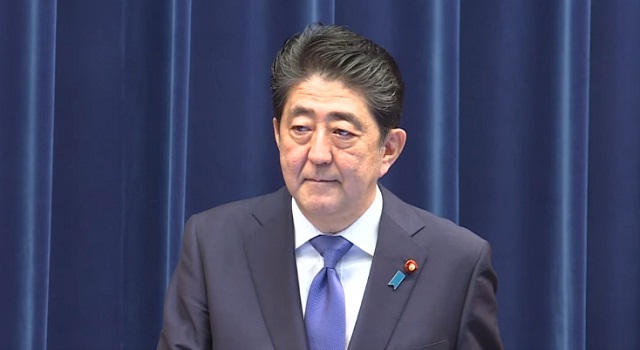
Tokyo, Japan | AFP | The Bank of Japan on Monday unveiled a series of emergency monetary policy measures to shore up the world’s third-largest economy, as the coronavirus pandemic threatens a global recession.
In a meeting brought forward by two days, the BoJ said it would double its annual capacity to purchase exchange-traded funds and Japan real estate investment funds, the latest global central bank to take emergency action.
The moves sent Japanese markets whipsawing, with the Nikkei-225 initially surging two percent but then falling rapidly back into the red as traders digested the statement.
The bank said it had decided unanimously to “actively” purchase ETFs (exchange-traded funds) and J-REITs (investment funds tied to Japanese real estate) with an annual upper limit of 12 trillion yen ($112 billion) and 180 billion yen respectively.
Seiichi Suzuki, senior market analyst at Tokai Tokyo Research Institute, said: “What’s big is 12 trillion yen of ETFs buying, which means one trillion yen each month. What investor could ignore this?”
“It was quite a drastic step,” Suzuki told AFP. “Those who wanted to buy jumped on the occasion.”
Previously, the bank was buying a maximum of six trillion yen of ETFs and 90 billion yen of J-REITs per year.
The BoJ said it would also introduce a new operation to provide loans against corporate debt and raised its annual limit for corporate bond purchases by one trillion yen to 4.2 trillion yen.
But it left its main interest rate unchanged at minus 0.1 percent and also kept its upper limit for purchasing government bonds at 80 trillion yen.
“There have been significant uncertainties over the consequences of the outbreak of COVID-19 and over the size and persistence of their impact on domestic and overseas economies,” said the bank in a statement.
– Olympics fears –
The move followed emergency measures before Asian markets opened from the US Federal Reserve to shore up confidence and keep the financial sector running, including slashing the key interest rate to virtually zero.
The Fed made its second emergency rate cut in less than two weeks, lowering the benchmark borrowing rate to a range of 0-0.25 percent, where it was during the 2008 global financial crisis.
The Japanese economy was tottering even before the coronavirus struck, with growing fears of a recession. “Japan’s economic activity is likely to remain weak for the time being, mainly affected by the outbreak of COVID-19,” the BoJ said.
The country’s gross domestic product for the October-December quarter contracted by 1.8 percent, with consumer spending hit by a hike in consumption tax last October from eight percent to 10 percent.
Concerns are growing that consumption will be hit even harder as people put off big purchases due to coronavirus fears, with the pandemic also predicted to have a huge impact on exports.
On top of this looms the possibility that the Olympic Games, scheduled to open on July 24 in Tokyo, could be postponed or cancelled.
Estimates vary on what that could cost Japan, which is spending an estimated 1.35 trillion yen on Tokyo 2020. Any change to the Olympic schedule would have a huge impact on tourism — Japan was banking on 40 million visitors in 2020.
Economists at research firm Nomura already predict a 0.7-percent contraction in GDP for the 2020 calendar year, but warn that could be up to 1.5 percent if the Games are cancelled.
Monday’s measures “will contribute to supporting economic and financial activities”, said the bank.
 The Independent Uganda: You get the Truth we Pay the Price
The Independent Uganda: You get the Truth we Pay the Price


